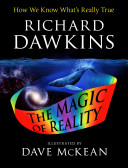The Genetic Drift of Languages
Just as some species are more similar than others and are placed in the same family, so there are also families of languages. Spanish, Italian, Portuguese, French and many European languages and dialects such as Romansch, Galician, Occitan and Catalan are all pretty similar to each other; together they're called 'Romance' languages. The name actually comes from their common origin in Latin, the language of Rome, not from any association with romance, but let's use an expression of love as nr example. Depending on which country you are in, you might declare your feelings in one of the following ways: 'Ti amo', 'Amote', 'T'aimi' or 'Je t'aime'. In Latin it would be 'Te amo' - exactly like modern Spanish.
To swear your love to someone in Kenya, Tanzania or Uganda you could say, in Swahili, 'Nakupenda.' A bit further south, in Mozambique, Zambia, or Malawi where I was brought up, you might say, in the Chinyanja language. Ndimakukonda. In other so-called Bantu languages in southern Africa you might say 'Ndinokuda, 'Ndiyakuthanda or, to a Zulu, 'Ngiyakuthanda. This Bantu family of languages is quite distinct from the Romance family of languages, and both are distinct from the-Germanic family which includes Dutch, German and the Scandinavian languages. See how we use the wore 'family' for languages, just as we do for species (the cat family, the dog family) and also, of course, for our own families (the Jones family. the Robinson family, the Dawkins family).
It isn't hard to work out how families of related languages arise over the centuries. Listen to the way you and your friends speak to each other, and compare it to the way your grandparents speak. Their speech is only slightly different and you can easily understand them, but they are only two generations away. Now imagine talking, not to your grandparents but to your 25-greats-grandparents. If you happen to be English, that might take you back to the late fourteenth century - the lifetime of the poet Geoffrey Chaucer, who wrote descriptions like this:
He was a lord ful fat and in good poynt,
Hise eyen stepe, and rollynge in his heed,
That stemed as a forneys of a leed;
His bootes souple, his hors in greet estaat.
Now certeinly he was a fair prelaat;
He was nat pale as a forpyned goost.
A fat swan loved he best of any roost.
His palfrey was as broun as is a berye,
Notes:
Languages evolve and have a family tree like species in evolution.
Folksonomies: evolution language drift
Taxonomies:
/travel/tourist destinations/africa (0.552041)
/family and parenting (0.476655)
/art and entertainment/books and literature (0.342299)
Keywords:
so-called Bantu languages (0.963391 (neutral:0.000000)), Hise eyen stepe (0.871650 (neutral:0.000000)), poet Geoffrey Chaucer (0.862569 (neutral:0.000000)), late fourteenth century (0.861695 (neutral:0.000000)), lord ful fat (0.855810 (neutral:0.000000)), Languages Languages (0.819539 (neutral:0.000000)), Bantu family (0.774889 (negative:-0.245229)), family tree (0.774790 (neutral:0.000000)), European languages (0.774769 (neutral:0.000000)), 'Ti amo (0.756943 (neutral:0.000000)), Genetic Drift (0.745583 (neutral:0.000000)), family). (0.741888 (negative:-0.441079)), Scandinavian languages (0.741023 (neutral:0.000000)), related languages (0.737166 (negative:-0.477489)), the-Germanic family (0.736597 (neutral:0.000000)), Romance family (0.735719 (negative:-0.245229)), cat family (0.733853 (neutral:0.000000)), dog family (0.733570 (neutral:0.000000)), Robinson family (0.729029 (positive:0.212019)), nr example (0.724447 (positive:0.414351)), common origin (0.714434 (neutral:0.000000)), following ways (0.712122 (neutral:0.000000)), southern Africa (0.709367 (neutral:0.000000)), Chinyanja language (0.707991 (neutral:0.000000)), fat swan (0.704938 (positive:0.547066)), Jones family. (0.703368 (positive:0.212019)), greet estaat (0.699223 (positive:0.274040)), good poynt (0.692224 (neutral:0.000000)), fair prelaat (0.690795 (positive:0.305344)), bootes souple (0.688652 (neutral:0.000000))
Entities:
Geoffrey Chaucer:Person (0.710470 (neutral:0.000000)), Romansch:City (0.532060 (neutral:0.000000)), Mozambique:Country (0.498610 (neutral:0.000000)), Rome:City (0.487671 (neutral:0.000000)), Kenya:Country (0.482955 (neutral:0.000000)), palfrey:Person (0.474374 (neutral:0.000000)), Malawi:Country (0.460633 (neutral:0.000000)), Africa:Country (0.460174 (neutral:0.000000)), Uganda:Country (0.451890 (neutral:0.000000)), Zambia:Country (0.442306 (neutral:0.000000)), Nakupenda:City (0.441602 (neutral:0.000000)), Tanzania:Country (0.432543 (neutral:0.000000)), Jones:Person (0.426570 (positive:0.212019)), Dawkins:Person (0.412504 (negative:-0.441079)), broun:Person (0.406593 (neutral:0.000000)), Robinson:Person (0.378450 (positive:0.212019))
Concepts:
Bantu languages (0.989564): dbpedia | freebase | yago
Swahili language (0.859333): dbpedia | freebase | opencyc | yago
Geoffrey Chaucer (0.844398): website | dbpedia | freebase | opencyc | yago
Language (0.789625): dbpedia | freebase | opencyc
Romance languages (0.788930): dbpedia | freebase | yago
Love (0.721562): dbpedia | freebase | opencyc
Dialect (0.717509): dbpedia | freebase
Family (0.687243): dbpedia | freebase





